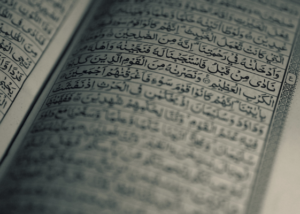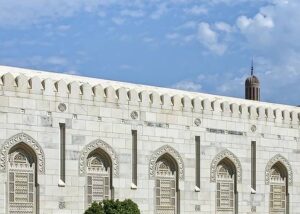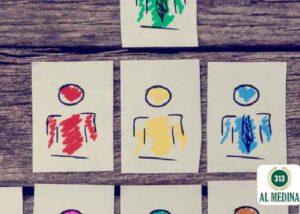Quran
Hadith
Islamic Text
بِسْمِ اللَّهِ الرَّحْمَنِ الرَّحِيمِ
In the Name of Allah Most Merciful Most Kind
Short Answer
Yes, hiding knowledge is a sin. Allah Most High said such people will have a painful punishment. Our Prophet ﷺ warned of such people being ‘bridled with reins of fire.’ Imam al-Dhahabi included it in his collection on major sins (Kabaair).
Explanation
إِنَّ الَّذِينَ يَكْتُمُونَ مَا أَنْزَلَ اللَّهُ مِنَ الْكِتَابِ وَيَشْتَرُونَ بِهِ ثَمَنًا قَلِيلًا أُولَئِكَ مَا يَأْكُلُونَ فِي بُطُونِهِمْ إِلَّا النَّارَ وَلَا يُكَلِّمُهُمُ اللَّهُ يَوْمَ الْقِيَامَةِ وَلَا يُزَكِّيهِمْ وَلَهُمْ عَذَابٌ أَلِيمٌ (174) أُولَئِكَ الَّذِينَ اشْتَرَوُا الضَّلَالَةَ بِالْهُدَى وَالْعَذَابَ بِالْمَغْفِرَةِ فَمَا أَصْبَرَهُمْ عَلَى النَّارِ (175)
Indeed, those who conceal what Allah has sent down of the Book and exchange it for a paltry price, they consume nothing but fire into their bellies. Allah will not speak to them on the Day of Resurrection, nor will He purify them. And they will have a painful torment. Those are the ones who have exchanged guidance for error and forgiveness for punishment. How steadfast they are for (in pursuit of) the Fire. (Surah al-Baqarah, 174 – 175).
The scholars of Ahl al-Sunnah clarified that hiding or concealing knowledge is a sin. This is due to the clear and repeated warnings found in the Quran and Sunnah. In the verse of the Holy Quran above, Allah Most High speaks of punishing and not purifying those who conceal knowledge.
عَنْ أَبِي هُرَيْرَةَ، قَالَ: قَالَ رَسُولُ اللَّهِ صَلَّى اللَّهُ عَلَيْهِ وَسَلَّمَ: مَنْ سُئِلَ عَنْ عِلْمٍ عَلِمَهُ ثُمَّ كَتَمَهُ أُلْجِمَ يَوْمَ القِيَامَةِ بِلِجَامٍ مِنْ نَارٍ. وَفِي البَابِ عَنْ جَابِرٍ، وَعَبْدِ اللَّهِ بْنِ عَمْرٍو. حَدِيثُ أَبِي هُرَيْرَةَ حَدِيثٌ حَسَنٌ
Abu Hurairah (May Allah Most High be pleased with him) narrated that the Messenger of Allah ﷺ said: “Whoever is asked about knowledge that he knows and conceals it, will be bridled with reins of fire on the Day of Resurrection.” In this chapter there are narrations from (Sayidina) Jabir and (Sayidina) Abdullah bin Amr. The narration of Abu Hurairah is Hasan. (Sunan al-Tirmidhi 2649, Hasan).
For more discussion on the authenticity of this Hadith see the related answer. (Hadith about hiding knowledge). There are numerous Hadith narrations clarifying the prohibition upon hiding knowledge. Based upon the abundance of evidence, scholars of Ahl al-Sunnah said it is sinful to conceal knowledge. Imam al-Dhahabi clarified further that it is actually one of the major sins (Kabeerah).
التَّعَلُّم للدنيا وكتمان الْعلم. (الكبائر)
Seeking knowledge for worldly benefit and hiding knowledge. (Imam al-Dhahabi, al-Kabaair).
There is a narration in Ibn Maja (262) in which Sayidina Abu Hurairah mentioned that: If it was not for these two Ayahs he would not have narrated Hadith. This statement, from a great Sahabi, certainly demonstrates the importance of conveying knowledge. However, it also conveys the gravity of concealing or hiding knowledge. The Sahabah were so concerned with misquoting the blessed Prophet ﷺ they were included towards not quoting at all.
The Ummah is in dire need of this caution regarding misquoting the blessed Prophet ﷺ in our time. Unfortunately, there are so many inauthentic narrations attributed to our Prophet ﷺ and many people are absolutely unconcerned. They continue to spread these narrations and ignore all warnings.
Concealing knowledge can take many forms. The most manifest form is refusing to answer a direct question regarding a particular matter. Thus, concealing knowledge of that matter. Another form is skipping it or refusing to address it when it comes up in a class or lecture. This is a more subtle form.
There is a particularly destructive method of concealing knowledge employed by sectarian people. They prohibit people from taking knowledge from any sources who are outside of their sect or group. The less extreme amongst them do not prohibit it, rather they warn against it. In both cases they conceal knowledge that would contradict what they teach.
Not only is this behavior contrary to Quran and Sunnah, but it is also incredibly destructive. It exacerbates divisions within the Ummah. Whereas we have a duty to work to unite the Ummah. We must be particularly vigilant against this sectarian form of concealing knowledge since our institutions have become incredibly sectarian.
And Allah Most High Knows Best.
–Answered by Shaykh Noorud-deen Rashid (18.12.23)






